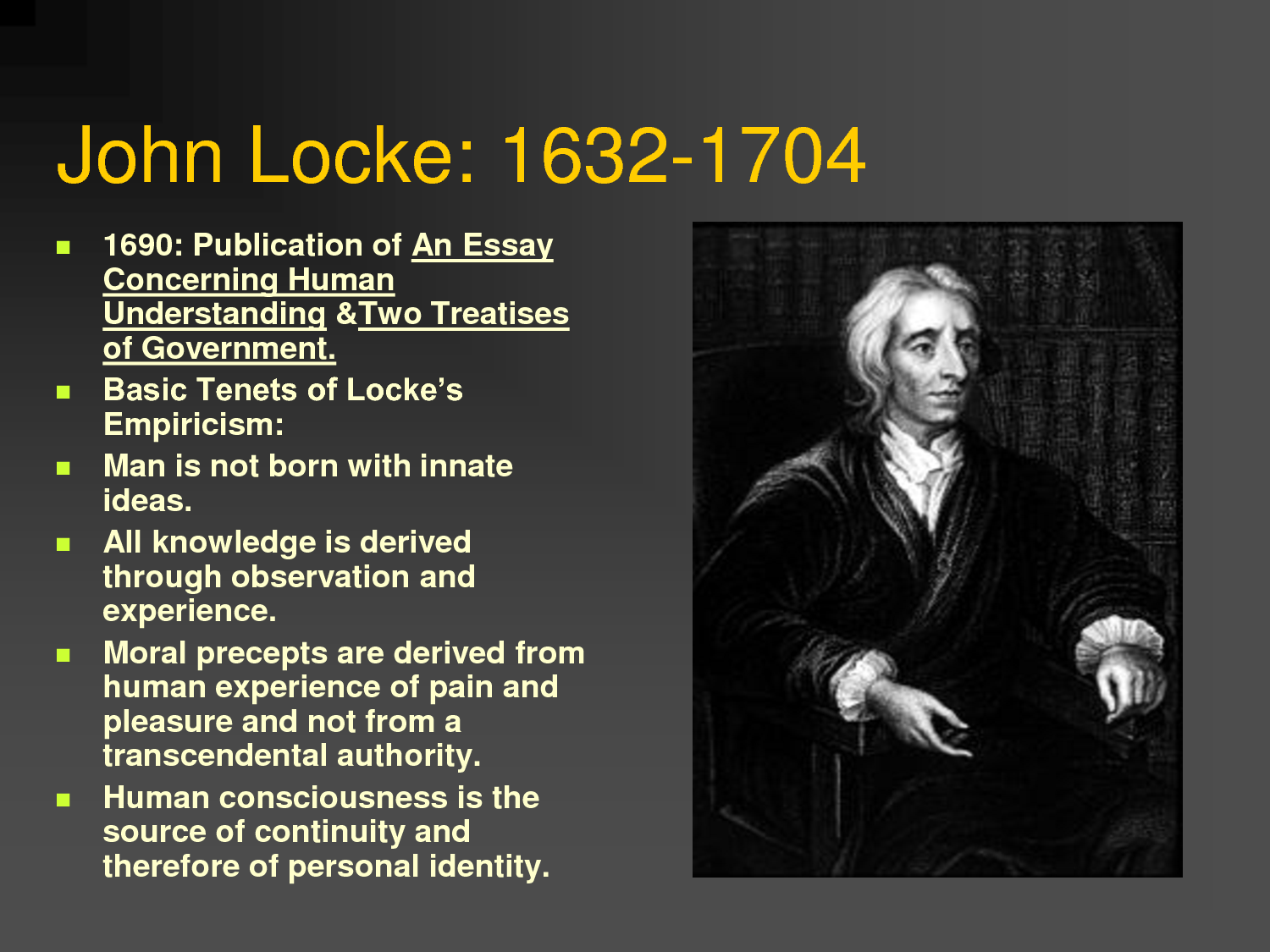⌚ Locke Natural Law

Archived from the original on He lost most locke natural law his hearing. John Maxwell Indianapolis, ; orig. He was the eldest son of Agnes Keene, daughter of a small-town tanner, and John Locke, an impecunious Causes Of Poverty In America Essay lawyer Influential Factors (Comfortable) served as a clerk for justices of the locke natural law. Darmstadt: Scientia Verlag Aalen.
John Locke's discussion of natural law and natural rights
In return, Locke expected those citizens to follow the legal laws enacted by the government. But with the practice of enslavement common throughout the American Colonies in , did Jefferson — a life-long enslaver himself — really believe the immortal words he had written? As for Jefferson, history shows that he had long believed the slave trade was morally wrong and attempted to denounce it in the Declaration of Independence. Jefferson later blamed the removal of his statement on influential delegates who represented merchants who were at the time dependent on the Transatlantic slave trade for their livelihoods. Other delegates may have feared the possible loss of their financial support for the expected Revolutionary War. On the other hand, Jefferson had expressed his fear that suddenly freeing all of the enslaved people might result in a bitter race war ending in their virtual extermination.
While the practice of enslavement would persist in the United States until the end of the Civil War 89 years after issuance of the Declaration of Independence, many of the human equality and rights promised in the document continued to be denied to Black people, other people of color, and women for years. Even today, for many Americans, the true meaning of equality and its related application of natural rights in areas such as racial profiling, gay rights, and gender-based discrimination remain an issue.
Share Flipboard Email. Robert Longley. History and Government Expert. Robert Longley is a U. Facebook Facebook. Updated April 16, Cite this Article Format. Longley, Robert. What Are Natural Rights? Brief History of the Declaration of Independence. What Are Individual Rights? Definition and Examples. Locke does likewise. Natural law and natural right may be combined, but if they are, one must take precedence over the other. Hobbes had argued that freedom and equality, and the priority of individual right, meant that individuals in the state of nature could pursue their survival and interest without limitation.
They had no duty to respect the rights of others. This is why the state of nature was a state of war. The source of this duty, he says, is natural law. Hobbes and Locke agree that individuals have a right to property in the state of nature, but Hobbes denies that individuals have any duty to respect the property of others. Locke says individuals have a duty to respect the property and lives and liberties of others even in the state of nature, a duty he traces to natural law.
Here, then, is the issue in the natural law—natural right dichotomy: if individual right is primary, can individuals have any duty to respect the rights of others? Or does it? How extensive is this loophole? In the beginning of the Second Treatise , Locke seems to claim that the state of nature is a place of peace and harmony. This is the deepest controversy in Locke interpretation today, a controversy that is sometimes acrimonious. Even for those who see Locke as a kind of Hobbesian, though, it is generally agreed that Locke believes in some degree of natural duty to respect the rights of others. Similarly, for those who see Locke as a natural law thinker, there is controversy over the source of that law.
Locke says, in the First Treatise of Government and elsewhere, that God is the source of the natural law. But God is much less in evidence in the Second Treatise. Further, if Locke is serious about natural law, it is clear that his version of natural law is quite different from that of other natural law thinkers, such as Thomas Aquinas. If Locke is a natural law thinker, his version of natural law is much more individualistic, much closer to Hobbes, than were previous versions.
For contemporary Americans, one reason for studying Locke together with Hobbes is to understand the character of liberalism. A liberal system such as ours enshrines individual rights, but its health depends upon people exercising those rights responsibly. It depends on people taking seriously their duty to respect the rights of others. Many observers believe that, while Americans today are eager to claim their rights, too few are willing to shoulder the attendant responsibilities.
Is a rights-based society doomed to degenerate into simple selfishness? Or is it possible to construct a rights philosophy with a robust element of responsibility built into it? Must such a philosophy place natural law above individual right? Must this law have a religious dimension? These are questions that should send us back to Hobbes, Locke, and the architects of the American Constitution. Locke, First Treatise of Government , at the same web address.
Types of republics. Some T. He Shack Analysis the books in Locke's library at the Bodleian are a combination of manuscript locke natural law print. Washington: Atlantic Publishers.
